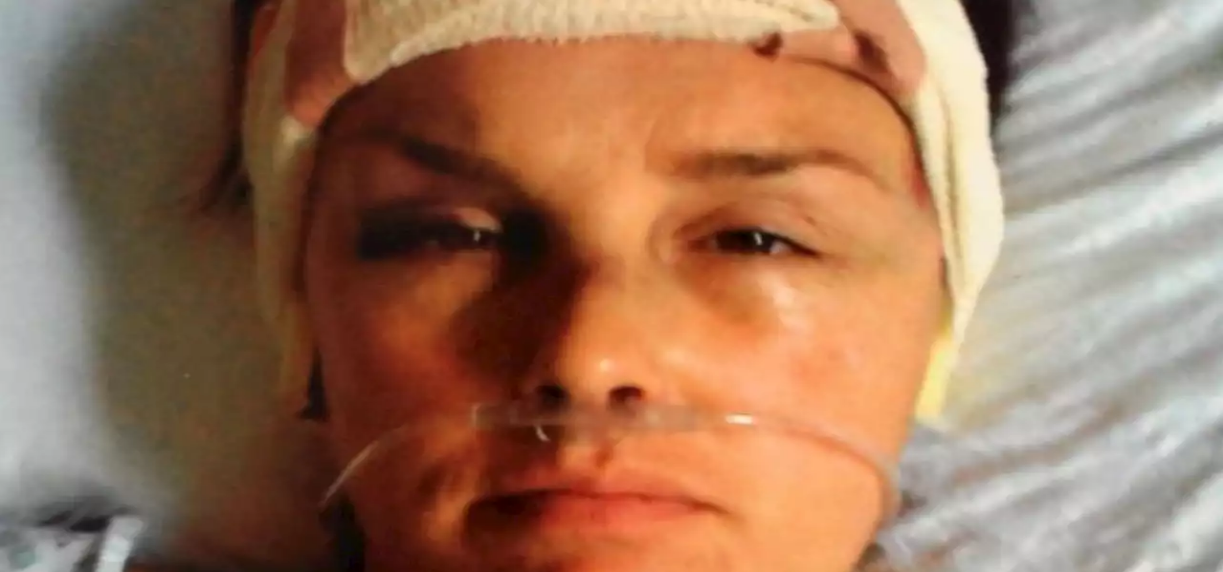Health Staff ‘Missing Opportunities’ To Spot Signs Of Domestic Abuse
There are fears this lack of training means opportunities to help vulnerable abuse victims are being needlessly missed.
By Sanya Burgess, News reporter
First published: 10 August 2019
More than half of front-line healthcare staff say they do not feel able to identify a domestic abuse victim, according to a new survey.
The number of staff who do not feel adequately trained in the private sector is 65%, while the figure for the NHS is 48%.
Campaigners and experts say this lack of training means opportunities to help vulnerable abuse victims are being missed.
About one in nine public and private staff say they have never been trained but believe the skills are needed as part of their role.
Some who have had training believe it is not fit for purpose, according to the YouGov poll.
In the NHS, 11% of front-line staff say they have received training but it was inadequate. This number falls to 7% among private sector staff.
Research from domestic abuse charity SafeLives found victims experience abuse for an average of four years before getting support from a specialist independent domestic violence adviser (IDVA). More than half (55%) had visited their GP an average of 4.6 times during that time. The charity says just 7% of referrals to specialists are made through health services.
She told Sky News: “There were so many missed opportunities.”
One example she gave was when she went with her husband to the GP to raise concerns over the cocktail of prescription drugs he was taking.
“I said to the GP ‘listen, he needs counselling or something… his temper is getting more severe’. He told me there was an in-house counsellor but they would not be adequate for his needs so he told me to ring the charity Mind and a private health company.
“The GP never asked what I meant by anger, and as I couldn’t speak with [my husband] in front of me, they could have phoned me after. There are not enough people trained to pick up a disclosure [of abuse], or signs before a disclosure.”
Some health staff who haven’t received the training believe they don’t need it as part of their jobs.
One in four (26%) NHS patient-facing staff don’t believe it is necessary that they should be able to identify a victim. This opinion is more common among those working in hospitals (30%) than in GP surgeries (25%).
In the private sector, this figure jumps to 46%.
Ms Williams said: “For those who say it’s not their problem, what if it was your sister or daughter under coercive control? It’s everyone’s business, it’s everybody’s problem.”
Laura, 50, from Manchester, says her late mother Elizabeth had been beaten, raped and controlled by her stepfather over the past 40 years (their names have been changed in this article).
Laura is a safeguarding professional which meant she was able to step in to ensure her elderly mother, who was in hospital after having a stroke, was protected from her abusive husband.
Her fear was that if she had not stepped in to alert doctors, her mother would have been sent home with an abuser in charge of her care.
“When she was moved and began treatment, I raised an adult safeguarding alert with doctors and staff. They were brilliant but [the husband] became hostile and began to instantly minimise the abuse he had subjected her to.
Linda Salt, head of safeguarding at an NHS Trust, said she was not surprised by the figures
“I don’t think the doctors would have picked it up if I hadn’t raised it. A lot of IDVAs are in maternity and A&E departments but I could see nothing about domestic abuse in the stroke and dementia wards.
“My mum had no capacity because she couldn’t speak. This dodgy individual who abused her over the years, who towards the end was not knocking her about but was still controlling, was able to come to her bedside.”
Linda Salt, head of safeguarding at the Wrightington, Wigan and Leigh NHS Foundation Trust, which has invested heavily into domestic abuse support resources, told Sky News she was not surprised by the numbers.
Commenting specifically on the number of staff who do not believe it is part of their job to be able to identify victims, Mrs Salt said: “Again, it doesn’t surprise me. I think it’s quite a complicated question because you are looking at one in four staff in an NHS establishment who might well be a victim or survivor themselves and they might not want to revisit that.
“The other point is a lot of staff are so busy with competing priorities of high workload and multiple training within their clinical areas… I’m not surprised. You have to change the mindset of clinical staff to think about domestic abuse – which is what we are doing. It is difficult.”
In England and Wales, two women are killed each week by a current or former partner
Image:
In England and Wales, two women are killed each week by a current or former partner
Suzanne Jacob, chief executive of SafeLives, a domestic abuse charity, told Sky News: “These alarming findings show the urgent need for a shift in the way we think about domestic abuse.
“Domestic abuse is everyone’s problem because of the huge impact it has on individual lives, families and the many onward issues people face when they’ve experienced it – including often needing extensive access to health services.”
In the UK, an estimated 1.9 million people, 1.3 million of those being women, suffer some form of domestic abuse each year. In England and Wales, two women are killed each week by a current or former partner.
Source: news.Sky.com







